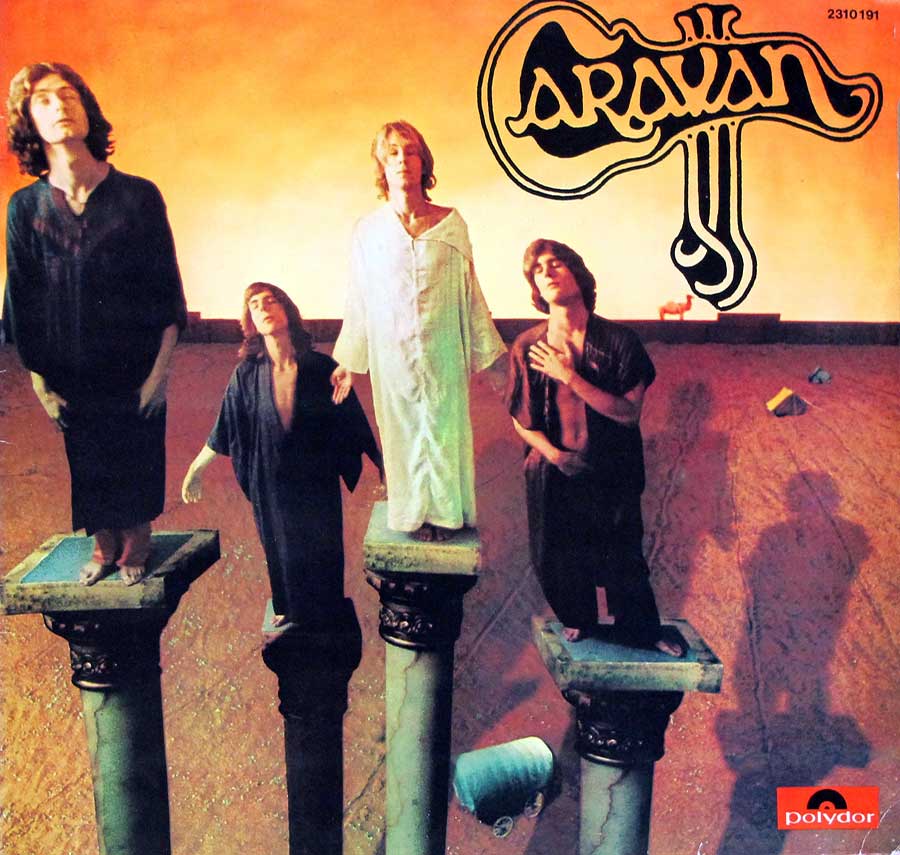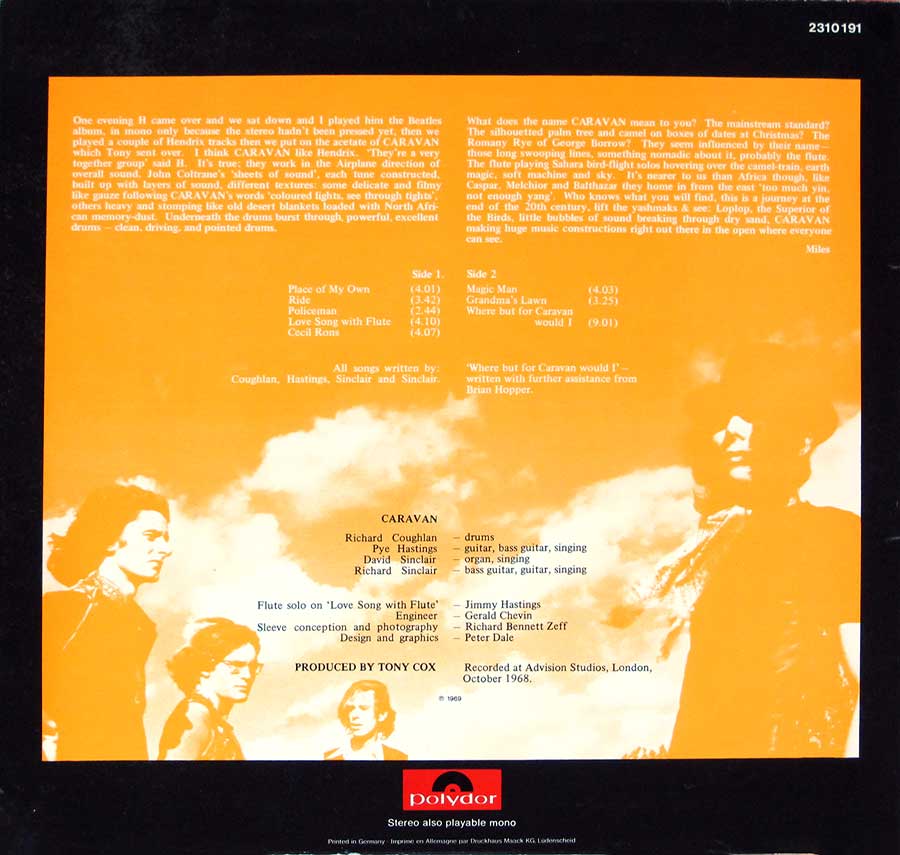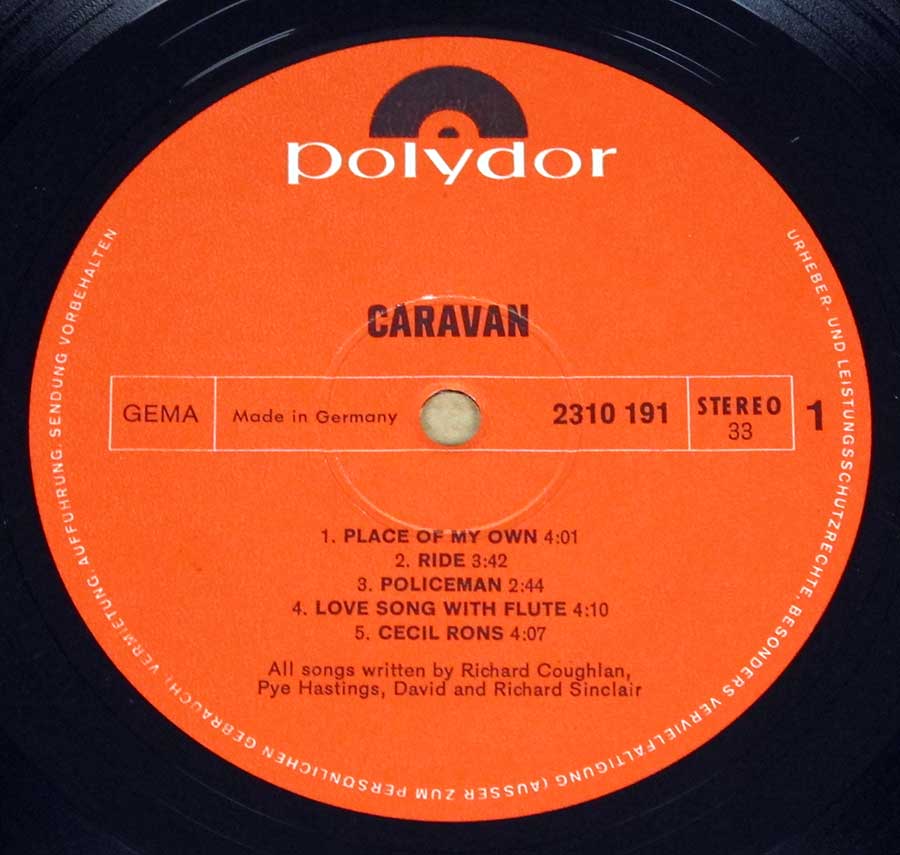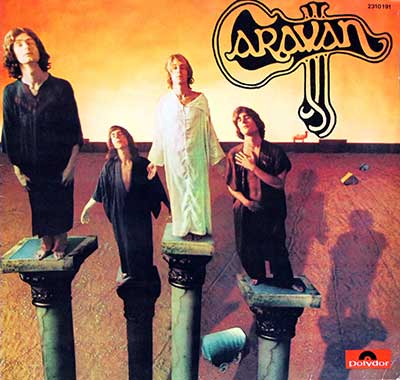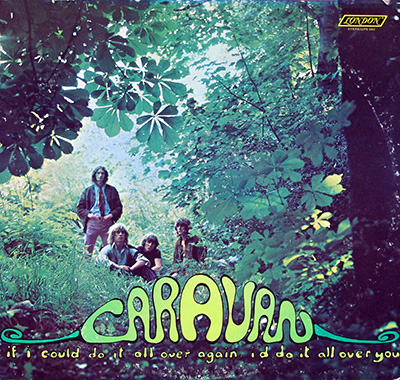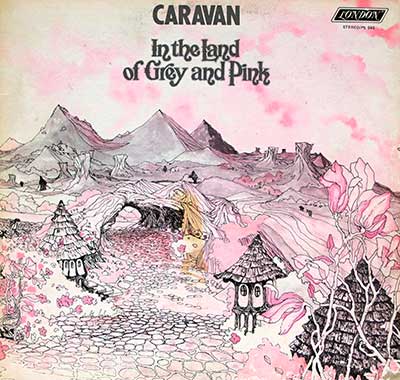In the vibrant music scene of 1968, amidst the psychedelic experimentation and blues-rock revival, a unique sound emerged from the Canterbury scene in England. Caravan, a band with a whimsical name and a penchant for musical exploration, released their self-titled debut album, setting the stage for a progressive rock journey that would captivate listeners for decades to come.
Historical Context and Musical Exploration
Caravan's debut arrived during a period of immense creativity and change in popular music. Bands were pushing boundaries, blending genres, and experimenting with new sounds. The Canterbury scene, known for its eclectic mix of jazz, rock, and psychedelia, provided fertile ground for Caravan's musical explorations. The band drew inspiration from a diverse range of sources, including jazz legends like Miles Davis and John Coltrane, as well as British rock pioneers like The Beatles and The Kinks.
Genre and Musical Style
Caravan's self-titled album defies easy categorization. It seamlessly blends elements of progressive rock, jazz fusion, and psychedelic rock, creating a sound that is both whimsical and complex. The album features intricate instrumental passages, soaring vocal harmonies, and a playful sense of experimentation. Songs like "Place of My Own" and "Love Song with Flute" showcase the band's knack for crafting memorable melodies and intricate arrangements.
Production and Recording
The album was produced by Ian Ralfini, a veteran producer known for his work with artists like The Yardbirds and Spooky Tooth. It was recorded at Advision Studios in London, a facility that had become a hub for recording progressive rock music. The album's production is notable for its warm, organic sound, which captures the energy and spontaneity of the band's performances.
Caravan's self-titled debut album may not have achieved massive commercial success upon its release, but it laid the groundwork for a remarkable career. The album's unique blend of musical genres, combined with the band's adventurous spirit and playful approach to songwriting, would go on to influence countless musicians in the progressive rock genre and beyond. It stands as a testament to the power of musical exploration and the enduring legacy of a band that dared to be different.
